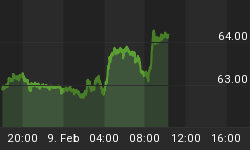I received several emails from readers regarding Can Bernanke Force Banks to Lend by Halting Interest on Excess Reserves?
Here are the specific sentences in question:
Banks lend if and only if both of the following are true.
- They are not capital impaired
- They have credit-worthy borrowers willing to borrow.
Reader Gil writes ....
Hello Mish
I must take exception to #2.
Did the banks not lend to anyone that walked through their doors just a few years ago without asking questions and without income to repay the loans?
Yes, I know the Fed "forced" them to do it, but ....
Any thoughts on that?
Thanks, Gil
Meaning of "Credit-Worthy"
For starters let's quickly discard the notion the Fed forced banks to lend. The Fed has no such power. If the Fed did, there would be more lending now.
My statement of lending conditions above are accurate. It all depends on the meaning of "Credit-Worthy".
All I meant is banks thought they would be repaid. More accurately, banks extend credit if they think loans will result in profits.
Did Banks Give Mortgages to Non-Creditworthy Borrowers?
Certainly banks do not lend if they expect losses.
Recall that banks did not believe that people would walk-away! It had never happened before. People historically paid their mortgage before paying credit card bills. There was much discussion of this before it happened.
I predicted mass "walk-aways", banks certainly didn't.
Five Reasons Banks Extended Credit in Housing Bubble Years
- People would pay mortgage loans because they always did
- Housing prices would rise sufficiently to cover defaults
- Mortgage interest rates to subprime borrowers were high enough to cover risk
- Defaults would happen over a long period of time, not quickly concentrated
- Banks could pass the trash to Fannie Mae and Freddie Mac (without clawbacks for non-performance), and/or loans could be sliced and diced in tranches to investors
If any of those conditions were true, then banks were indeed making loans to "credit-worthy" borrowers. Subprime borrowers did pay a huge penalty rate. Multiple combinations of the above five points are likely.
Huge Mistakes Coupled With Greed
Banks made huge mistakes because all five conditions above failed, far sooner than banks or the Fed expected. Recall that Bernanke did not believe there was a housing bubble at all!
Thus, at the time, banks thought they were making creditworthy loans.
They thought wrong, in a big way, and they were very greedy as well. Greed coupled with poor thinking is a very bad combination.
What About Now?
Banks are not lending now for three reasons
- Banks are capital impaired
- Banks are worried about being repaid
- The relatively small pool of credit-worthy borrowers who banks would lend to right now, do not want credit
Stunning Change in Attitudes
Another way of looking at the five points pertaining to the "housing bubble years" is there has been a stunning change in attitudes regarding how banks perceive "credit-worthiness" as well as a stunning change in willingness of consumers to go deeper in debt.
Conclusion: Then as now, banks only lend to customers they think are credit-worthy.
However, Attitudes on what it takes to be "credit-worthy" have changed.
Attitudes are the key to understanding this apparent conundrum.















